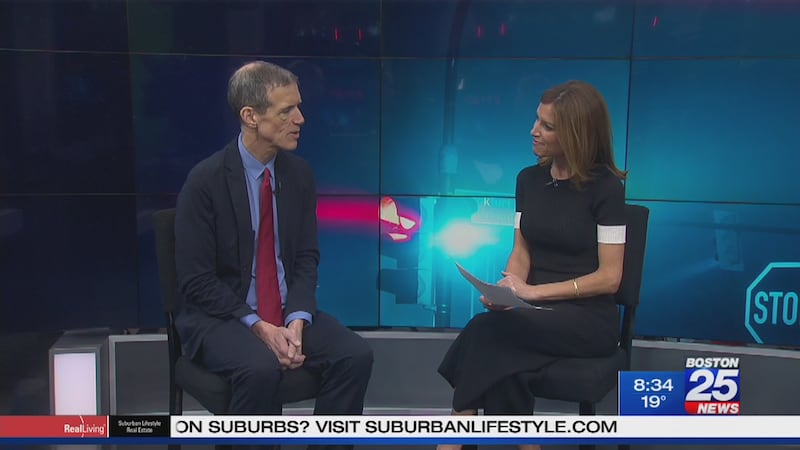BOSTON — Drivers in the state might be in for a big change on the roads if a new red light bill gets the green light from the Senate.
On Thursday, lawmakers are set to discuss bill S 2553, which, if passed, would implement thousands of automated road safety camera systems to identify and then photograph vehicles that commit any number of traffic law violations at intersections.
The camera systems could look for vehicles that fail to stop at a red light, cars traveling at least five miles an hour above the posted speed limit, vehicles making a right turn at a red light where prohibited, and cars blocking an intersection or bus lane. Drivers who put the pedal down when they see a yellow light, however, would be are safe -- the bill declares that it would not be a violation “if any part of the vehicle was over the stop line when the light was yellow.”
At least 20 states across the country have implemented red light cameras, but in many of those places the installation of these high tech tools has been met with backlash.
Senator William Brownsberger, (D) Belmont, is the one behind the bill, pushing for the cameras he says would help make sure people obey the law.
“For me this is about responding to demands constituents are making for better enforcement,” said Brownsberger. “Unlike all the other cameras out there this thing is on but only takes a picture if there’s a violation.”
The person to whom the offending vehicle is registered would be liable for the violation, regardless of whether that person was driving the vehicle at the time, but camera enforced violations would not be made part of the owner’s driving record and would not count towards determining car insurance surcharges.
Exemptions would be made for cases in which the violation was necessary to get out of the way for an emergency vehicle, cars that are part of funeral processions or if the car is reported as stolen.
“You can’t send an officer out there because we don’t have enough officers where they need to be," said Brownsberger.
Under the bill cities and towns would be limited to one camera per 2500 residents, meaning Boston would have about 280, Quincy would only have 38 and a suburb like Belmont would only have about 10.
To address privacy concerns, communities would have to delete images of violations 48 hours after they are settled and the images could not be released to authorities without a court order.
“I think it can be an infringement on people’s privacy," said CJ Koch, who opposes the bill. “I think there’s a fundamental difference between wanting to make sure the law is obeyed and just trying to catch people."
The idea of automated traffic and speed enforcement has surfaced on Beacon Hill before, most recently as part of a 2017-18 road safety bill. At the time, Brownsberger wrote that traffic enforcement cameras “could substantially reduce accidents,” but said the political will has not existed to tackle the issue.
“Most of us are accustomed to making personal decisions about whether or not we can or should attempt to get away with a close push on a red light or a speed five or ten miles per hour above the speed limit. The fact is that police resources are very limited and millions of traffic violations go undetected or ignored every day on the roads of the Commonwealth,” Brownsberger wrote on his website.
Others say they fully support the idea.
“If you put a camera right here you will catch at least 10 people, right like in this second,” said Sylvia Mejia. “You know how they run over,. they really want to hit you! They ram their car and you go, ‘Oh my god,’ you have to run."
The maximum fine that could be imposed for a camera enforceable violation would be $25 and each municipality would only be allowed to collect as much money as is necessary to recover the costs of installing and operating the camera system. Any net revenue generated by the fines would be deposited into the statewide Transportation Trust Fund.
Violations would not affect driving records and would not count toward car insurance surcharges.
© 2020 Cox Media Group






